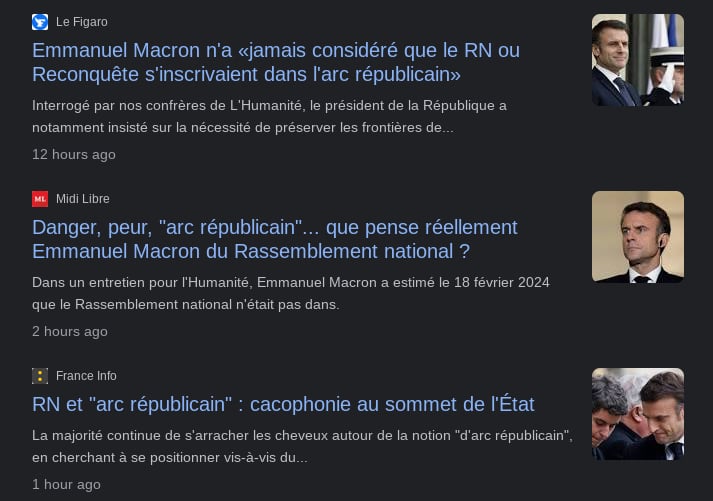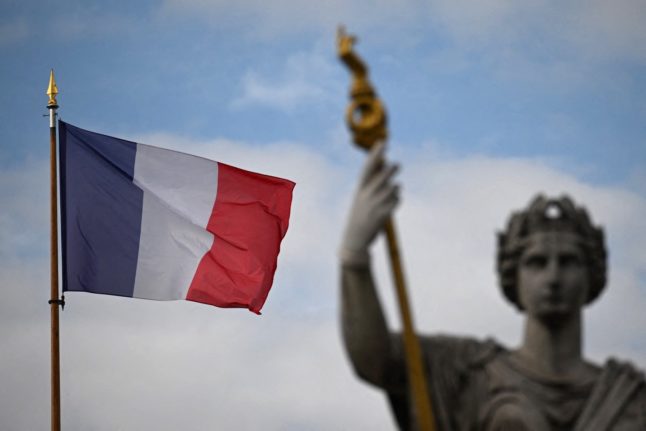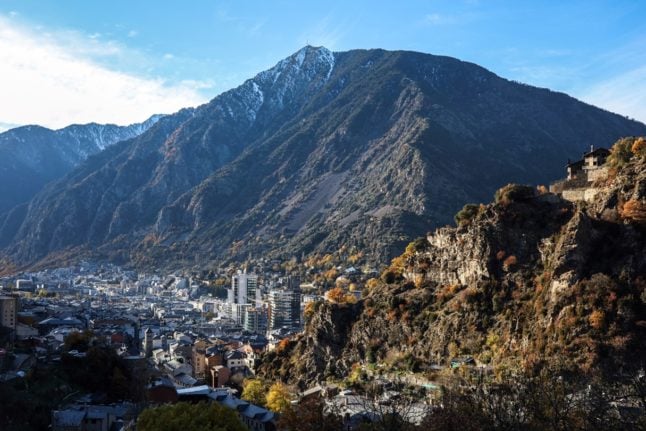Type ‘Arc républicain’ into Google and you’ll get a rash of headlines from politicians discussing who is part of the arc and who is not. And because of France’s current political make-up, it’s likely to be a topic that will continue to make headlines between now and 2027.

So what does it mean?
It’s exact translation is what you would expect – the republican arc – but English doesn’t quite have an equivalent phrase, even though the topic is often discussed in the English-speaking world as well.
The broadest definition is “a type of coalition made up of centrist, social democratic and centre-right parties with the aim of combating populists of both the left and the right”.
It’s not a coalition in the sense of a formal grouping of political parties, more a kind of informal agreement between parties that regard themselves as embodying the values of the French Republic – democracy, equality, the rule of law – against groups or parties that they regard as populists or anti-democratic.
When discussing core values, in France you will often hear ‘republican values’ to mean the values of the French Republic, while in the UK or the US people would be more likely to say ‘British values’ or ‘American values’.
And it’s not a new creation – the phrase was used in the late 1940s and early 1950s, during the somewhat chaotic Fourth Republic in the aftermath of WWII when political parties from the centre, centre-left and centre-right formed a political group, and has been used regularly since.
These days it’s most commonly used in relation to Marine Le Pen’s far-right Rassemblement National and the dilemma is the same in France as in many countries around the world; once the far-right start to win elections and take up seats in parliament do you treat them the same as any other political party or not?
Some argue that they are the elected representatives of the people so they must be treated the same as all other political parties, others say that by their populist views and anti-democratic roots the members of RN put themselves outside the political norm.
While this discussion is taking place around the world, in France it is framed as whether the party are part of ‘l’arc républicain’. In English you might say ‘part of the political mainstream’ or ‘part of the political landscape’.
The debate on how to treat the far-right – and by extension the roughly one third of the French electorate who voted for them in the first round of the 2022 presidential elections (Marine Le Pen got 23 percent of the vote, extreme right pundit Eric Zemmour got seven percent) – is currently causing deep divisions within the French government.
READ ALSO ‘We cannot continue to label the far-right as extremists – we must debate them instead’
But it’s not just a far-right issue, some people also suggest that the far-left La France Insoumise should also be excluded from the ‘republican arc’.
Asked about this issue in an interview with Communist newspaper l’Humanité, president Emmanuel Macron gave this definition: “The Assemblée nationale [French parliament] is home to all the forces elected by the people.
“Do they all adhere to the Republic and its values? No. The same is true of far-left groups . . . certain figures in La France Insoumise, by their positions fight against the values of the Republic.
“All the same, I don’t equate the two extremes. I have never considered that Rassemblement National or Reconquête [Zemmour’s party] are part of the Arc Républicain.”
The discussion is not just an abstract topic – it has practical everyday implications such as whether elected MPs from the far right should be invited to state occasions. In recent days RN MPs were excluded from the state funeral of former justice minister Robert Badinter, at the request of Badinter’s family.
Earlier in the parliamentary term some MPs said they would refuse to play in the traditional inter-party parliamentary football match if RN MPs took part.
But it also has implications for how parties will contest the 2027 presidential election – write off the far-right as extremists and ignore their pronouncements or try to engage with them and debate their ideas?
When election time comes around, you may also hear the related phrase ‘Front républicain’ – which refers to political strategy for the second round of elections.
French elections have two rounds, with the two highest scoring candidates from round one going through to round two. If, as happened in both 2017 and 2022, Marine Le Pen makes it through to the second round, you can expect to see her rival make an appeal to the ‘republican front’.
This essentially means that voters who consider themselves centrist, democratic or anti-populist agreeing to vote for Le Pen’s rival, even if they hate them and their policies, in order to avoid a far-right president of France.
Use it like this
Je n’ai jamais considéré que le RN ou Reconquête s’inscrivaient dans l’arc républicain – I have never considered that RN or Reconquête are part of the political mainstream
La notion “d’arc républicain”, un piège pour la macronie – The idea of the ‘republican arc’ is a trap for the Macronists
Ni l’extrême gauche, ni l’extrême droite. Nous sommes dans l’arc républicain, nous avons porté ces valeurs pendant la campagne, ce sont des valeurs que nous avons à cœur – Neither the far left nor the far right. We are part of the republican arc, we supported those values during the campaign those are the values we hold dear



 Please whitelist us to continue reading.
Please whitelist us to continue reading.
Member comments